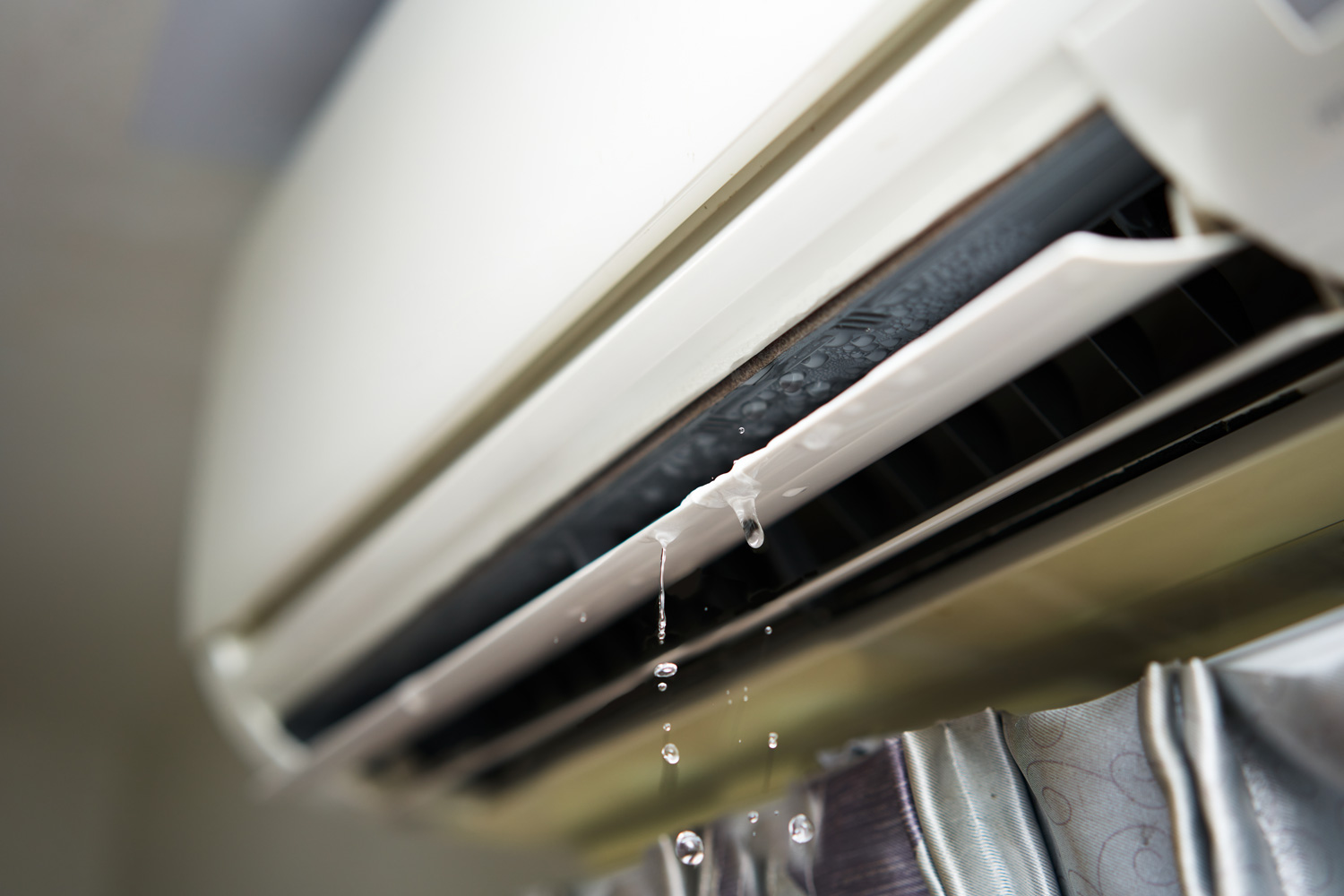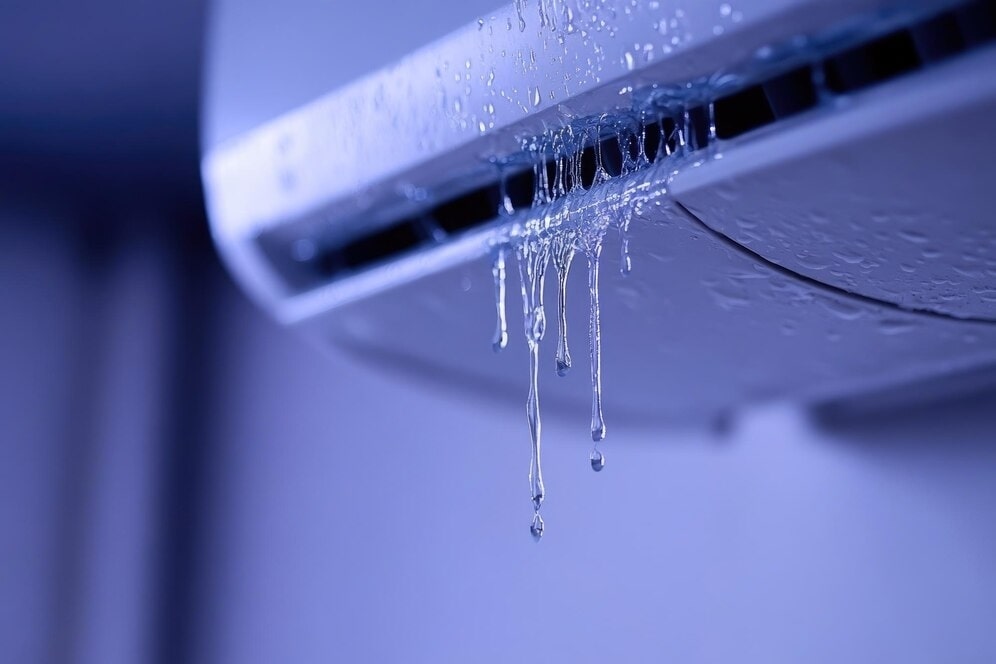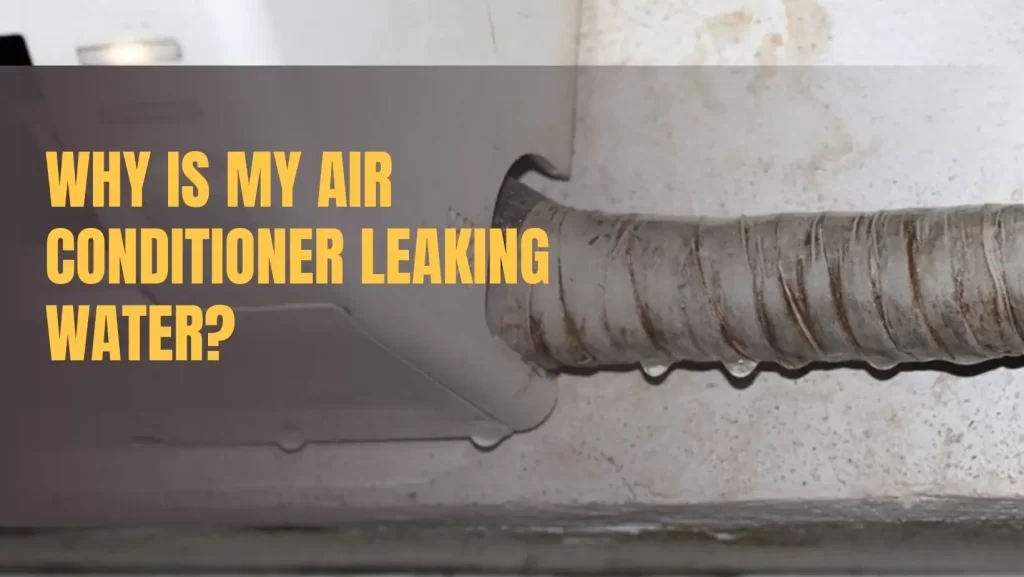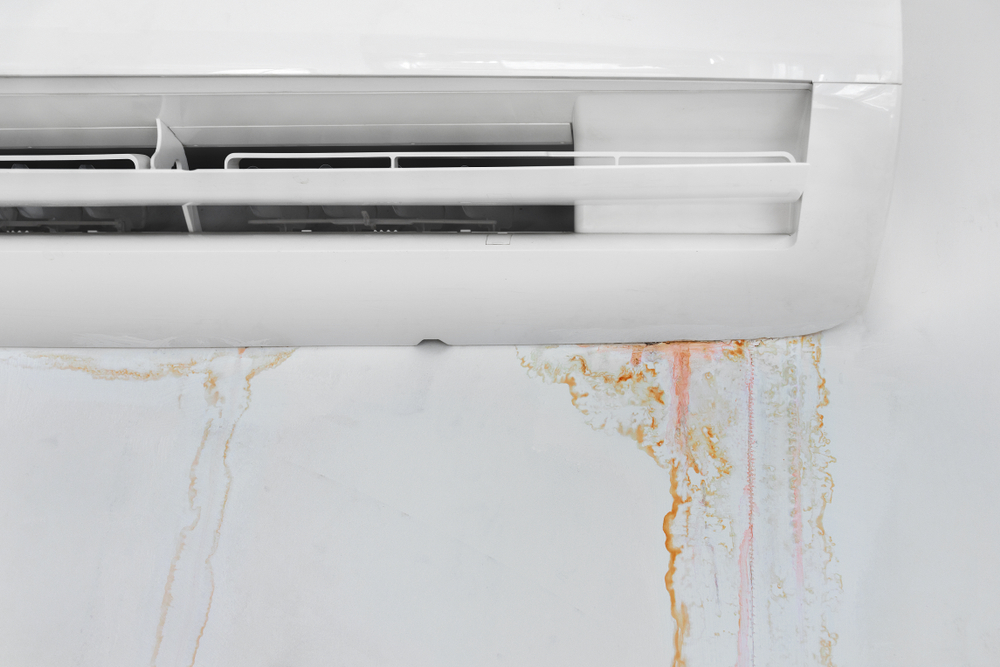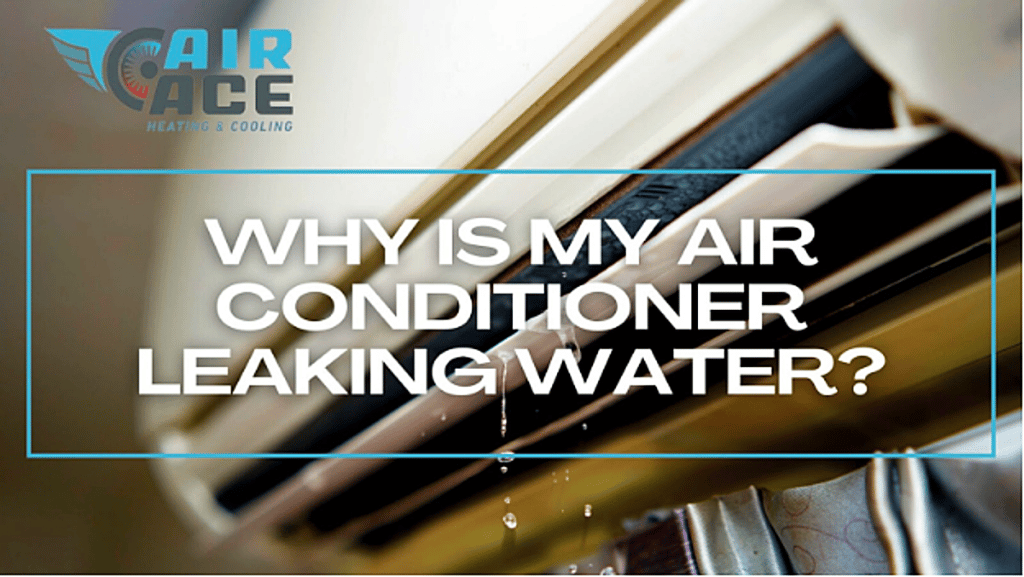What Makes An Air Conditioner Leak Water

Water leaks from your air conditioner can be a homeowner's nightmare. While air conditioners naturally produce condensation, excessive water pooling around your unit indicates a problem. Understanding the common causes of these leaks can help you diagnose the issue and potentially avoid costly repairs. This guide breaks down the main reasons why your AC might be leaking water, offering insights for homeowners, real estate investors, and HVAC professionals.
Common Causes of Air Conditioner Water Leaks
Several factors can contribute to a leaky AC. Here's a detailed look at the most frequent culprits:
Clogged Condensate Drain Line
The condensate drain line is responsible for removing the water that condenses on your AC's evaporator coil. Over time, algae, mold, dust, and other debris can accumulate inside the drain line, causing a blockage. This blockage prevents the water from draining properly, leading to a backup and subsequent leak. This is the most common reason for AC water leaks.
Signs of a clogged condensate drain line:
- Water pooling around the indoor unit (furnace or air handler).
- Water stains on the ceiling near the indoor unit.
- Musty odor coming from the vents.
- The AC shuts off automatically.
Solution:
You can often clear a minor clog yourself using a wet/dry vacuum to suck out the blockage from the drain line opening. Alternatively, you can flush the line with a mixture of bleach and water (1 cup bleach to 1 gallon of water). For stubborn clogs, it's best to call an HVAC professional.
Broken or Disconnected Drain Pan
The condensate drain pan sits beneath the evaporator coil and collects the condensation. If the pan is cracked, rusted, or disconnected, it will obviously leak. This is more common in older units where the plastic has become brittle or corrosion has set in.
Signs of a broken or disconnected drain pan:
- Visible cracks or rust on the drain pan.
- Water dripping directly from the pan.
- The pan appears to be tilted or misaligned.
Solution:
Minor cracks can sometimes be patched with a waterproof sealant. However, a severely damaged drain pan typically needs to be replaced. This is best left to a qualified HVAC technician.
Frozen Evaporator Coil
A frozen evaporator coil can also cause water leaks. When the coil freezes, the ice eventually melts, and the resulting water can overwhelm the drain pan, leading to overflow and leaks. Several factors can cause a coil to freeze:
- Low refrigerant: Insufficient refrigerant can cause the coil to become too cold, leading to freezing.
- Restricted airflow: Dirty air filters, blocked vents, or a malfunctioning blower motor can restrict airflow over the coil, causing it to freeze.
- Low outdoor temperature: Running the AC when the outdoor temperature is too low (below 60 degrees Fahrenheit for many models) can also cause freezing.
Signs of a frozen evaporator coil:
- Reduced airflow from the vents.
- Visible ice on the refrigerant lines or evaporator coil.
- Warm air blowing from the vents.
Solution:
Turn off the AC and allow the ice to melt completely. Check and replace the air filter. If the problem persists, call an HVAC technician to diagnose and repair the underlying issue, such as a refrigerant leak or airflow restriction.
Refrigerant Leaks
Low refrigerant levels, as mentioned above, can contribute to evaporator coil freezing. However, refrigerant leaks themselves won't directly cause water to leak. Instead, they lead to the frozen coil, which then melts and causes the water leak. Addressing the refrigerant leak is crucial to solving the problem permanently.
Signs of a refrigerant leak:
- Poor cooling performance.
- Higher energy bills.
- Hissing or bubbling sounds near the AC unit.
- Frozen evaporator coil.
Solution:
Refrigerant leaks require professional repair. An HVAC technician will need to locate and repair the leak, and then recharge the system with the correct amount of refrigerant.
Improper Installation
Incorrect installation of the AC unit, particularly the drain line, can lead to leaks. If the drain line is not properly sloped or connected, water may not drain effectively and could back up, causing leaks.
Signs of improper installation:
- Water leaks from the beginning of operation.
- Visible issues with the drain line slope or connections.
Solution:
This requires professional correction. Contact a qualified HVAC installer to inspect and rectify any installation errors.
Preventative Maintenance to Avoid AC Water Leaks
Regular maintenance is key to preventing AC water leaks and ensuring the longevity of your system. Here are some essential maintenance tasks:
- Change air filters regularly: Dirty air filters restrict airflow, contributing to frozen evaporator coils. Change your air filter every 1-3 months, depending on usage and air quality.
- Clean the condensate drain line: Flush the drain line with a bleach and water solution or use a wet/dry vacuum to remove debris at least twice a year.
- Schedule annual professional maintenance: A qualified HVAC technician can inspect your system for potential problems, such as refrigerant leaks, and perform necessary maintenance to keep it running efficiently.
- Trim vegetation around the outdoor unit: Ensure adequate airflow around the outdoor unit by trimming any bushes or plants that may be blocking it.
Choosing a Reliable Air Conditioner: Brands and Features
When replacing or upgrading your AC unit, consider factors like energy efficiency, cooling capacity, and warranty. Look for units with high SEER (Seasonal Energy Efficiency Ratio) ratings for cooling efficiency and consider features like variable-speed compressors for enhanced comfort and energy savings.
Popular AC Brands:
- Carrier: Known for their innovative technology and high-efficiency models. Offers a wide range of options, including units with advanced features like smart controls and air purification systems.
- Trane: Renowned for their durability and reliability. Trane units are built to last and offer excellent performance in demanding conditions.
- Lennox: Offers a variety of energy-efficient and quiet AC units. Lennox is a popular choice for homeowners seeking both comfort and savings.
- Goodman: A budget-friendly option offering good value for the price. Goodman units are reliable and efficient, making them a popular choice for homeowners looking for an affordable solution.
- Rheem: Known for its innovative features and energy-efficient models. Offers smart home integration and advanced control options.
Example Model Comparisons:
(Note: Specific models and pricing vary depending on location and dealer.)
- Carrier Infinity 26: Up to 26 SEER, variable-speed compressor, advanced control features. (Premium Price)
- Trane XV20i: Up to 20 SEER, variable-speed compressor, durable construction. (Mid-Range to Premium Price)
- Goodman GSX16: Up to 16 SEER, single-stage compressor, affordable option. (Budget-Friendly Price)
Warranty Considerations
Pay close attention to the warranty offered by the manufacturer. A good warranty can protect you from unexpected repair costs. Typically, warranties cover parts for a specific period (e.g., 5-10 years), and some offer extended warranties on the compressor. Be sure to register your AC unit with the manufacturer to activate the warranty.
Professional Help vs. DIY
While some AC maintenance tasks, like changing air filters and clearing minor drain line clogs, can be done yourself, more complex issues require professional attention. Attempting to repair refrigerant leaks or electrical components without proper training can be dangerous and could void your warranty.
Conclusion
Understanding the causes of AC water leaks is crucial for maintaining a comfortable and healthy home environment. By performing regular maintenance, addressing issues promptly, and choosing a reliable AC unit, you can minimize the risk of leaks and enjoy years of trouble-free operation. Whether you're a homeowner, real estate investor, or HVAC professional, this guide provides valuable insights to help you navigate the world of air conditioning and prevent those dreaded water leaks.

